The AMD Radeon RX 5600 XT Review, Feat. Sapphire Pulse: A New Challenger For Mainstream Gaming
by Ryan Smith on January 21, 2020 9:01 AM ESTSynthetics
Moving on, we have our synthetic performance testing, taking a look at geometry throughput, pixel throughput, memory compression, and more.
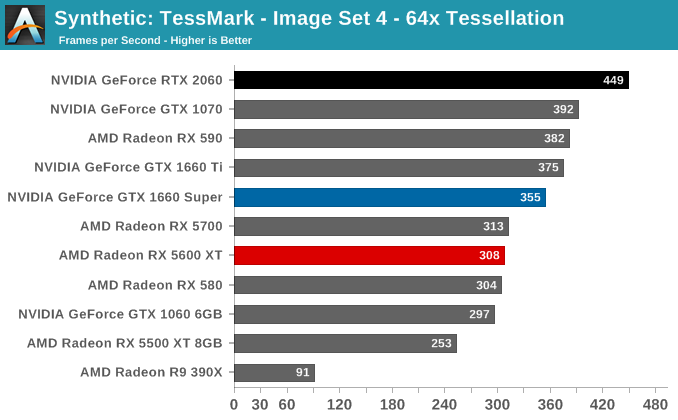
Given the significance of cutting a quarter of Navi 10’s GDDR6 memory bus, I was very curious to see what that would do for synthetic performance. But for better or worse, this has created more questions than it has solved.
The numbers listed below are accurate, in as much as these are the results I get when testing these cards. Whether they are correct, however, is another matter.
The problem, in short, is that due to AMD’s very aggressive power savings/idling implementation for their Navi 10 cards, I have been unable to get these cards to run at their full memory clockspeeds when executing the the Beyond3D Suite benchmark suite. The GPU clocks regularly pass 1600MHz like they should, however AMD’s telemetry is reporting that memory clocks are rarely hitting 7Gbps, let alone 12Gbps+. As a result, we end up with results like the pixel test below, where the RX 5600 XT is beating the RX 5700, an otherwise impossible outcome.
As best as I can tell, this issue has been going on since the launch of the Radeon RX 5700 series back in July, but it’s only now that I’ve noticed it, in large part due to the RX 5600 XT cards being slightly less aggressive in their idling. In other words, those cards are boosting to higher memory clockspeeds more often, putting them ahead of the RX 5700 and bringing the clocking issue front and center.
I’m still working on a proper fix for the issue, but for now the results with Navi 10 cards should be taken with a large grain of salt. The benchmark itself is still fine, but AMD’s aggressive power management (and lack of an easy means to disable it) is kneecapping AMD’s performance in these benchmarks.
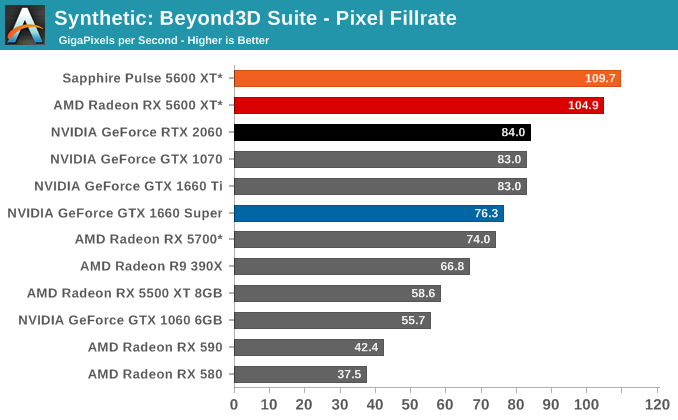
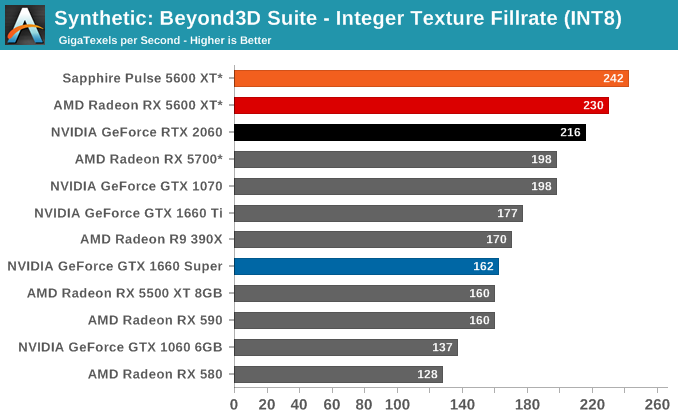
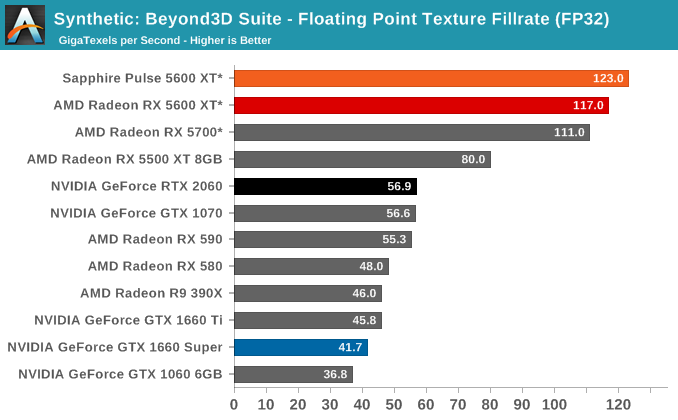
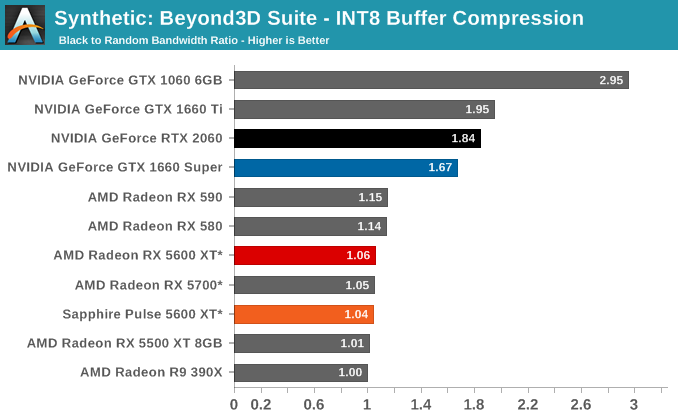
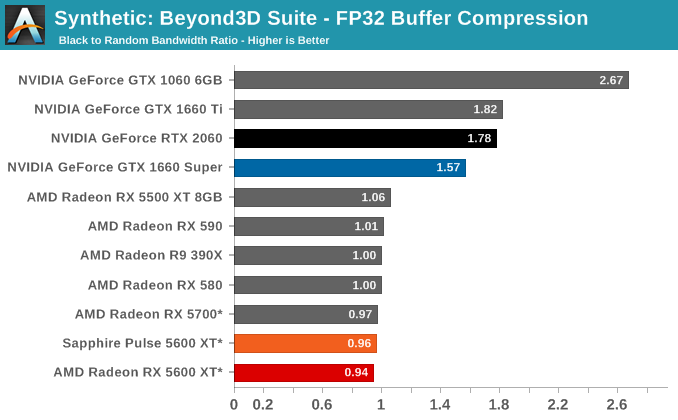










202 Comments
View All Comments
jragonsoul - Tuesday, January 21, 2020 - link
I didn't think the 5600XT would be really competitive. I'm glad to see I was probably wrong. Great on AMD.sonny73n - Wednesday, January 22, 2020 - link
You’re wrong. Most people would spend $20 more to get the RTX2060. For 1080p gaming, I would get the GTX1660 Super which suits 1080p gaming perfectly. It also has the best price/performance.The 5600XT needs to be priced at $240 to really have a competitive edge.
Korguz - Wednesday, January 22, 2020 - link
too bad its NOT 20 bucks more, in the US, maybe, else where.. its at best, $40 or $50keep dreaming there sunny73n
sonny73n - Thursday, January 23, 2020 - link
Don’t be absurd. This is based on 2020 GPU pricing comparison provided by Anandtech RIGHT HERE in the article.Korguz - Thursday, January 23, 2020 - link
sorry sonny73n you are being close minded... do you really think the prices are the same everywhere ?? AT's pricing is in US FUNDS, and there for, in countries OTHER then the US, the prices and price differences, will be higher and different... so my $40- $50 price difference, is NOT absurdhaukionkannel - Thursday, January 23, 2020 - link
Yeah... Different countries have different price differences!schujj07 - Wednesday, January 22, 2020 - link
Why would you spend an extra $20 for the RTX 2060 when the OC 5600XT is faster, cheaper, and uses less power than the 2060? Do you actively like spending more money for inferior products?jragonsoul - Wednesday, January 22, 2020 - link
Yeah, looks like Sonny didn't read the article at all.sonny73n - Thursday, January 23, 2020 - link
Yeah, looks like jragonsoul read the article but his brain can’t process any of it.Korguz - Thursday, January 23, 2020 - link
wow.. going to personal attacks, cant prove your point huh ? try looking in the mirror